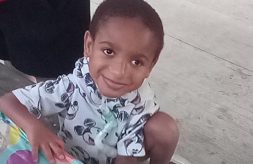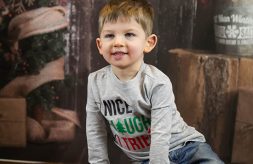The Barraza Family

“(DSCC Care Coordinator) Ariel is wonderful. She’s very understanding and good about following up and helping provide financial support.”
— Anita Barraza, mother to Daniel and Diana
“As a parent, we can feel so overwhelmed. Even if help is right there, that reach can be hard to do.”
Daniel Barraza, 17, and his big sister, Diana, 22, were born with the same rare condition. Yet, it took many years before their family knew their true diagnosis.
Doctors first thought the siblings had cerebral palsy with hypotonia and seizure disorders. Hypotonia means decreased muscle tone, so Daniel and Diana have a hard time sitting up, holding their head and body upright, and so on.
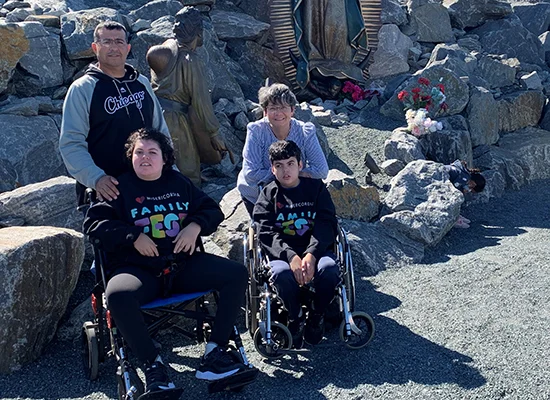
Both siblings enrolled with the Division of Specialized Care for Children (DSCC) shortly after they were born. (Diana recently aged out of DSCC’s Core Program after turning 22.)
In 2017, genetic testing revealed they both have a rare gene mutation called GPAA1. The Barrazas first knew of only a handful of families living with this syndrome worldwide, their mom, Anita said. They’ve learned of a few more families affected by GPAA1 since then.
The official diagnosis was initially difficult for Anita.
“It caused a lot of mixed emotions,” she said. “It was another phase of the grieving process you go through as a parent and a reminder of what’s wrong.”
Now, she focuses on her children’s abilities and helping them have the best quality of life possible.
She is thankful for the support DSCC provides to help maximize her children’s strengths, navigate their needs and connect with resources as they grow.
“(DSCC Care Coordinator) Ariel is wonderful. She’s very understanding and good about following up and helping provide financial support,” Anita said.
“DSCC, The Arc of Illinois and DRS (Division of Rehabilitation Services) have been wonderful for our family.”
“Engaging them is what matters”
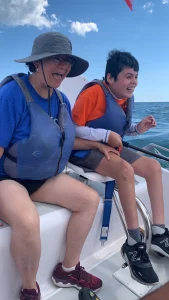
The Barrazas prioritize being active. They enjoy camping together and have traveled to Yellowstone, Mount Rushmore, Starved Rock and more.
The family is always on the lookout for accessible sites for Daniel and Diana’s wheelchairs. The siblings have also participated in the Special Olympics Illinois Summer Games.
“Seeing them active and engaging them is what matters to me most,” Anita said.
The family also wants to empower Daniel and Diana to be as independent as possible. They also want to help others understand their abilities.
Anita likes to make videos showing Daniel and Diana doing a variety of activities, such as preparing food, doing chores, playing sports and having fun outdoors.
“Since my children are non-verbal, this is a good way for people to know what they are capable of doing,” she said. “I encourage other parents to make them!”
Anita shares these videos with teachers, camp counselors, recreational program staff and more.
“A lot of times, we focus on the ‘cannot do’ and it limits our ability to see what they can do,” she said.
You can watch these videos below:
“Education empowers me”
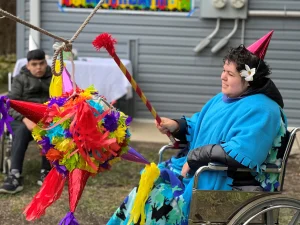 As an occupational therapist who works with schoolchildren, Anita understands both sides of the need for information and resources when supporting young adults with disabilities.
As an occupational therapist who works with schoolchildren, Anita understands both sides of the need for information and resources when supporting young adults with disabilities.
“As a parent, we can feel so overwhelmed. Even if help is right there, that reach can be hard to do,” she said.
Anita was grateful DSCC arranged for her family to attend the Illinois Statewide Transition Conference together. The conference helps families and professionals learn about the resources, information and opportunities available for youth with disabilities as they prepare for adulthood.
DSCC covered all the related conference costs. The conference was a valuable networking opportunity for the Barrazas.
“These types of resources educate me on how to best provide for my children’s needs and for their future,” Anita said.
Both Daniel and Diana are unable to safely live on their own due to their significant medical needs.
Anita says it’s hard to think about, but she realizes she must start planning for who can care for them when she and her husband can no longer do it. Residential placement may be necessary in the future.
She appreciates DSCC’s role in helping families prepare and outline goals for their child’s future. Families can never have enough information and resources, Anita said.
“Education empowers me to be better prepared to help (Diana and Daniel) have a good quality of life.”



